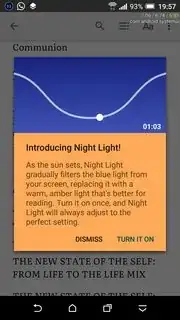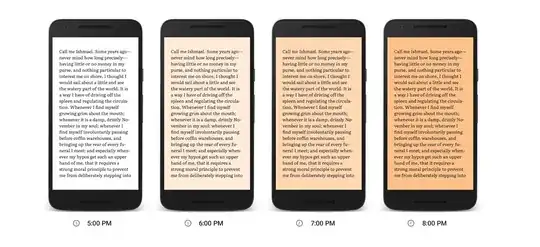Google Books app has the Night Light mode. It detects the time of the day and adjust the light accordingly.
Is there any scientific study that backs up such statement?
Update:
Text from image:
As the sun sets, Night Light gradually filters the blue light from your screen, replacing it with a warm, amber light that's better for reading. Turn it on once, and Night Light will always adjust to the perfect setting.
This question has nothing to do with Does reading off a self-luminous tablet impact the quality of sleep? as it has been marked as duplicate, please read both questions and see that they are totally different.
update 2
Answering to comments, with "better for reading" I mean to not causing fatigue, strained and dry eyes, at least no more than a clear background, easier to read improving the reading experience.
May be improving sleep is a side benefit from using an amber background, but I am not asking anything related to improve sleep. As said before, the background color adjust depending the time of the day, not just at night, so the main goal of this technology won't be to have a better sleep, but a better reading experience.
Rephrasing the original question, what are the benefits (if anyone) of filtering "the blue light from your screen, replacing it with a warm, amber light"?

